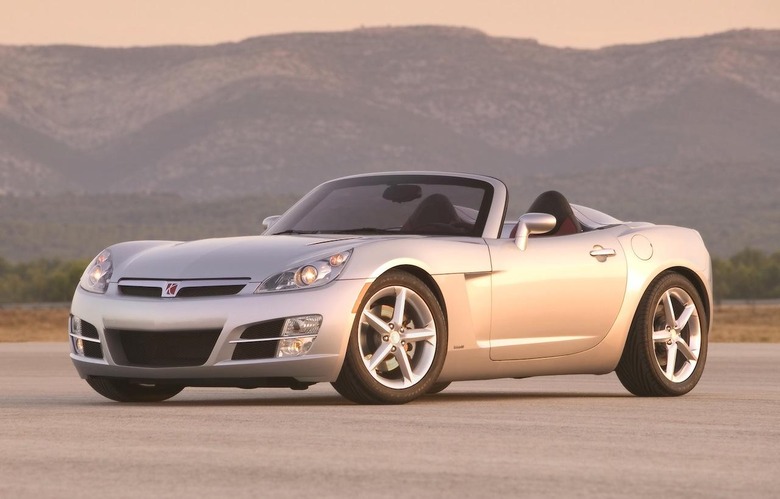GM Expands Car Recall To 1.37m Over Switch Safety
GM has expanded its huge recall of cars over fears that they could stall while driving or even see the airbags fail to deploy properly, almost doubling the number of affected vehicles to more than 1.3m. The recall bump adds select Saturn Ion, Chevrolet HHR, Pontiac Solstice, and Saturn Sky models to a list that already included Cobalts, the Pontiac G5, and Pontiac Pursuit, after GM discovered that substandard ignition switches could shut off the car's power inadvertently. The additions also raises the number of known incidents, GM admits.
Previously, GM had said that it was aware of six fatalities directly connected to the key issue, though pointed out that some had other circumstances that ought to be considered alongside the flaw. Now, the company has extended that to 13 front-seat fatalities across 31 incidents where the frontal airbags failed to go off.
The issue, GM says, is in an ignition switch that was apparently not manufactured to meet the company's specifications. Instead, it has proved too easy to turn back out of the "run" position, such as when heavy keychains are attached, or if the car goes over a significant bump.

That shuts off the engine and/or the car's electrics, including the power steering and power-assisted brakes, which can leave surprised drivers unable to guide their vehicle safely to a halt.
In addition to the nearly 779,000 2005-2007 Chevrolet Cobalts, Pontiac G5, and Pontiac Pursuit sold in Canada that were included in the initial recall, GM is now separately recalling 2003-2007 Saturn Ions, 2006-2007 Chevrolet HHRs, and finally 2006-2007 Pontiac Solstice and Saturn Sky models. The total number of cars has now reached 1,367,146.
Owners will be contacted directly, with the replacement key assembly fitted with no cost. Meanwhile, GM says it will also be investigating where its supply chain and safety processes fell short, having admitted that somewhere along the line the company screwed up.
"The chronology shows that the process employed to examine this phenomenon was not as robust as it should have been," GM North America President Alan Batey said in a statement. "Today's GM is committed to doing business differently and better. We will take an unflinching look at what happened and apply lessons learned here to improve going forward."
